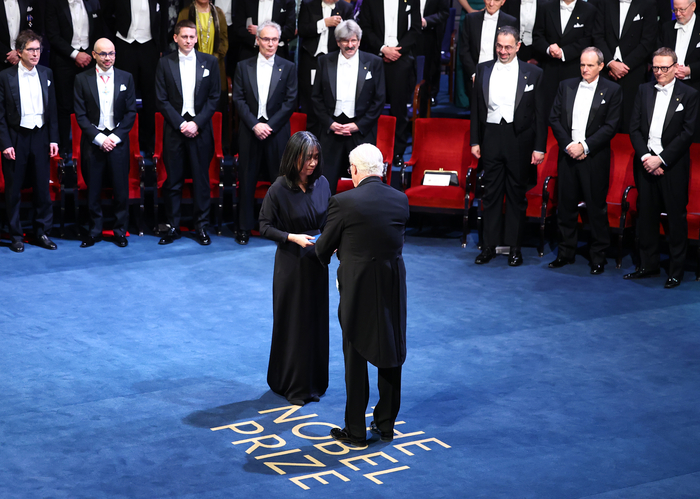*Photo Source: Yonhap News, @TearsOut, Yonhap News TV
Hello, everyone! Today, we bring you some truly historic news from the world of Korean literature. On December 10, Han Kang became the first Korean writer to win the Nobel Prize in Literature at the ceremony held in Stockholm, Sweden. Many of you may have watched the moment live on national broadcasts. This remarkable achievement is a significant milestone, elevating the global standing of Korean literature. Let’s dive deeper into the story behind this monumental occasion.
Han Kang’s win holds even greater significance given the current political climate in Korea. Her works, Human Acts and The Boy is Coming, vividly depict the pain of Korea’s Gwangju Uprising and Jeju 4.3 Incident, capturing the hearts of readers worldwide. Notably, in the wake of President Yoon Suk-yeol's recent declaration of martial law, the authenticity and social messages of Han Kang’s work resonate even more powerfully. At a press conference held in Stockholm on December 6, she commented on the irony of receiving the award during a martial law regime. Her poignant remarks, captured on video, left a lasting impression on audiences around the world.

Following the announcement of Han Kang’s Nobel win, there has been a surge of interest in her works and the messages they convey. To celebrate, a special lecture titled “Now, The Boy is Coming” was held at the Arirang Library in Seoul, hosted by the Seongbuk Cultural Foundation. Kim Sun-young, CEO of Find Publishing, highlighted the profound insights Han Kang’s writing offers and underscored the power of literature as a medium for delivering transformative messages. Events like this spark curiosity about how public discourse can inspire meaningful societal change, don’t they?
In her acceptance speech, Han Kang offered a deeply reflective perspective on the essence of literature. She recalled a childhood moment of sheltering from the rain, a memory that shaped her approach to writing. She compared reading and writing literature to an act of resistance against the destruction of life, asserting, “To create and engage with literature is inherently an opposition to all acts of annihilation.” Reflecting on the shared experience of rain—each individual perceiving it from their own perspective—Han Kang emphasized the importance of language in confronting the human condition.
She posed profound questions: Why are we born? Why do pain and love coexist? And how do we preserve our humanity? These, she said, are the eternal inquiries that literature dares to ask. For her, literature is akin to body warmth—illuminating and nurturing even in the darkest times. Concluding her speech, she dedicated the award to everyone, reaffirming the enduring power and value of literature.
What an inspiring moment for Korean literature and beyond!
More Awesomek posts
 2024 Year-End Billboard KPOP Chart Results |KPOP Record-Breaking Groups and Global 200 Artists
2024 Year-End Billboard KPOP Chart Results |KPOP Record-Breaking Groups and Global 200 Artists
 Yoo Byung-jae Confirms Dating Rumors: A 9-Year Age Gap and a Han So-hee Lookalike?
Yoo Byung-jae Confirms Dating Rumors: A 9-Year Age Gap and a Han So-hee Lookalike?
 Top 4 K-Beauty Brands Taking Over Sephora in 2024
Top 4 K-Beauty Brands Taking Over Sephora in 2024


